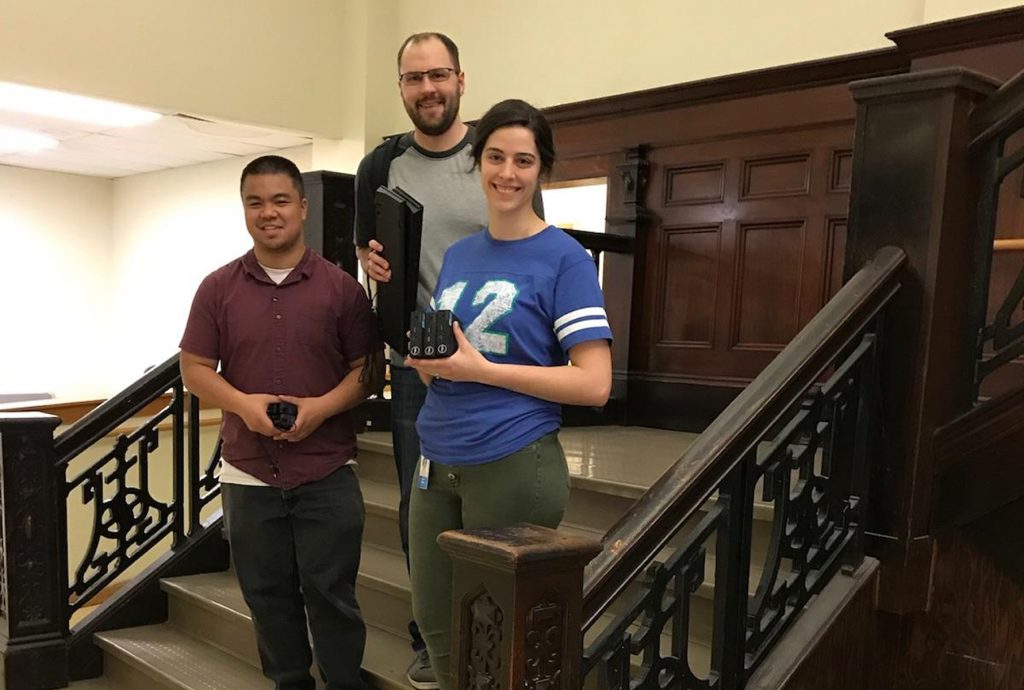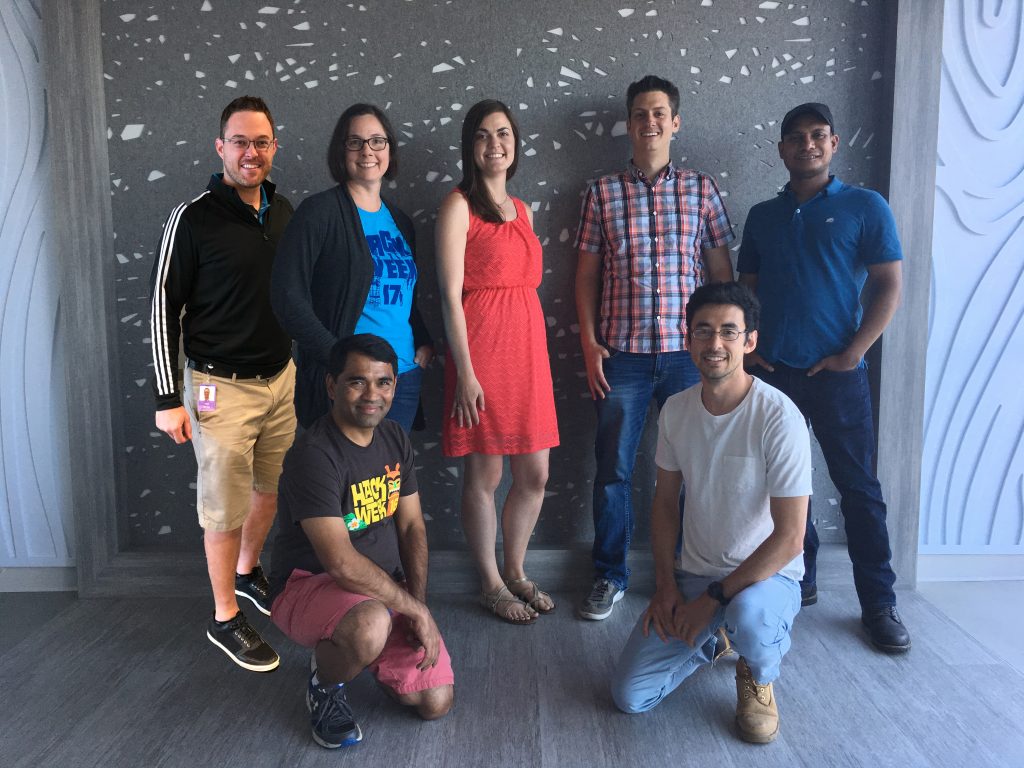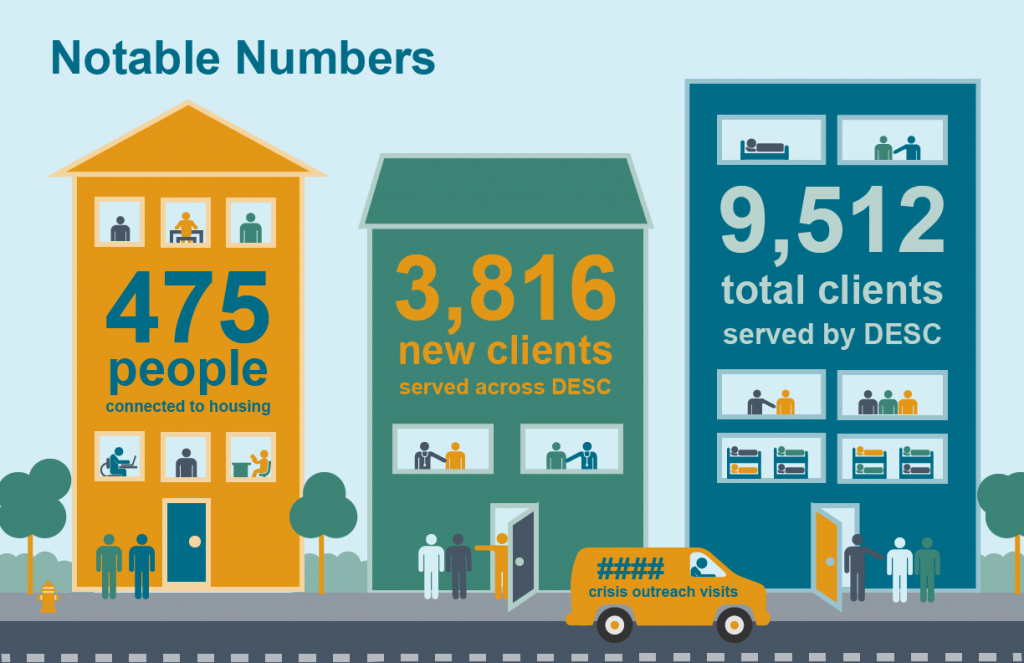Zillow is proud to partner with Downtown Emergency Service Center (DESC) in Seattle.
As one of the largest homelessness services organizations in Seattle, DESC provides integrated services including housing, emergency shelter, crisis intervention and healthcare to more than 10,000 homeless and formerly homeless people every year.
DESC is a recognized national leader in implementing innovative, cost-effective strategies that end homelessness.
Since our partnership began in 2017, Zillow has donated more than $100,000 to DESC. But even more meaningful to us is that Zillow employees have contributed more than 500 hours of volunteer service, much of which has focused on capacity-building projects.
Since our partnership began in 2017, Zillow has donated more than $100,000 to DESC. But even more meaningful to us is that Zillow employees have contributed more than 500 hours of volunteer service, much of which has focused on capacity-building projects.
In 2019, Zillow was honored to become the first private sector company to be awarded with DESC’s Community Partner of the Year Award at their annual Breakfast of Champions.
Zillow employees have supported DESC with several skilled projects, including:
- Setting up critical IT Infrastructure
- Building a volunteer management and tracking system in Salesforce for 600+ DESC volunteers
- Designing visuals in DESC’s annual report to showcase accomplishments
- And many more on the horizon . . .

Setting up Critical IT Infrastructure
When DESC asked Zillow if we could support them with a big transition for their IT infrastructure in 2018, several members of Zillow’s IT department volunteered right away.
DESC had recently moved their desktop infrastructure from a locally hosted server to the cloud and needed support getting 600+ employees set up for this transition. The Zillow team came together quickly to stage DESC’s administrative office in Pioneer Square and helped with the shelter next door.

Building a Volunteer Tracking System
Several hundred volunteers support DESC’s important work each year. Tracking their hours is required as part of maintaining nonprofit status, and with numerous housing locations throughout the area, tracking gets complex quickly.
DESC let Zillow know they needed help creating a better system for managing and tracking their volunteers—the existing system relied on the honor system to track shifts and hours and did not have a reliable method or feature for volunteers to adjust on their own. One implication was that DESC was having trouble tracking shift cancellations, and would sometimes end up with an un-staffed shift.
During a Zillow Hack Week—where teams bring new and innovative ideas and projects to life—eight employees took on DESC’s project. The team built DESC a volunteer management system in Salesforce to allow their volunteers to self-manage shifts and better track volunteer hours, and to automate email reminders so they’ll get notifications for upcoming shifts and can cancel or adjust as necessary.
“Zillow gave us the opportunity to do work that makes a big difference in people’s lives. To me, this was a great opportunity to make a difference,” said Kalpesh Shah, a member of the Zillow Hack Week team that completed the project.

Designing Visuals for DESC’s Annual Report
Nonprofit annual reports have an impact on funding. Financial supporters want to see the ways in which their grants and donations are making a difference—but they don’t always have time to read through lots of written copy. Good visual design can be the difference between a report that helps garner additional funding, or not.
DESC let Zillow know they could use help designing some infographics to help showcase their accomplishments in their annual report. Bradley O’Neal, a member of Zillow’s visual design team in Seattle known for excellent work and a fresh eye for design, agreed to help.
Bradley worked with DESC to take a series of spreadsheets with data representing the nonprofit’s progress over the year, and turn them into appealing and easy-to-read visual representations that would also complement DESC’s branding and design guidelines.
“For me, I see some of the consequences of being homeless every day when I step off the bus. It’s important to remember there are a lot of groups trying hard to make it better and find solutions. If we can use our positions to help in any way, we should do that,” says Bradley.